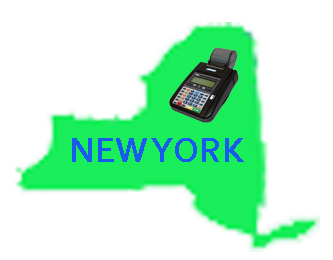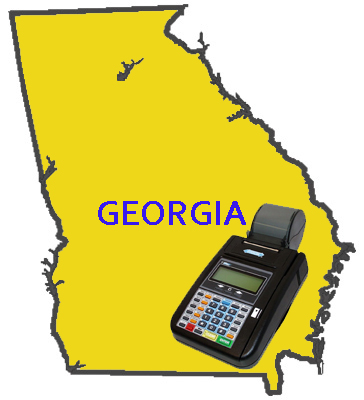Archive for 2010
Merchant Cash Advance Blacklist
August 5, 2010If you default on a Merchant Cash Advance naturally or by breach of contract, there is virtually no chance you will be able to obtain a Merchant Cash Advance in the future. 2008 was a particularly brutal year for Merchant Cash Advance firms. Not only had the recession weakened the most aggressive players but merchant fraud was abundant. 90% of the time this business is conducted by phone. Being vastly easier to obtain than a loan, many merchants rigged the process to get funding from multiple firms at the same time. Some would “go out of business” only to obtain more funds under a different name.
Merchant Cash Advance providers have stuck by their mantra of providing a simple process to their clients and have created solutions to prevent fraud. Industry groups such as the North American Merchant Advance Association provide a live database exchange of clients in default. A merchant’s most sensitive information is not revealed but public information such as legal name, dba, owner name, business address, and phone numbers (to name a few) are all stored in the database. Live funding activity is also shared in some capacity. For instance, if you apply to funding firm A and funding firm B at the same time but are funded by firm A today, then Firm B will automatically be alerted not to fund you.
These deterrents and live databases are not broadcast to the public and thus some businesses try to obtain additional advances after having defaulted on one already. If you are a merchant and you are trying to hide the fact that you currently have an advance or defaulted on one previously, you will not be successful in obtaining funds from another firm.
How Did Merchant Cash Advance Companies Get My Information?
August 4, 2010I used a Merchant Cash Advance program and now I am being solicited because of it. How did these companies get my information?
The Merchant Cash Advance industry is a competitive business. Most firms file a UCC-1 (public notice with your secretary of state) on your business to let potential creditors, lawyers, and other Merchant Cash Advance firms know your future credit card receivables have been purchased. This is customary for a loan as well, although the language in the filing is different.
Since this information is public, it is possible to request a list of all UCC-1’s filed by a particular funding company from the states. Each UCC-1 includes the DBA, Business Address, and Date it was filed. Computer programs or manual google searches can fill in the blanks and obtain the owner’s name and business phone number.
In just a few minutes, a competing Merchant Cash Advance firm or reseller can determine when you received funding and where you got it from. For the competition, It’s a free, easy way to create a marketing list.
The same can be done for traditional loans and equipment leases.
Am I Talking to a Broker? Does it Matter?
August 1, 2010Many merchant cash advance applicants have found the relationship structure of the companies involved confusing. Others who thought they understood it, later found out they were wrong. There are likely to be at least 3 parties involved in the process. Below is a breakdown of each and their role:
Cash Advance Provider: This is the company taking liability on the advance. They are the entity purchasing your future receivables at a discount. They also handle the decision making on approvals. It is very likely that they do not have an outbound marketing campaign or customer service department. They may rely on Brokers to bring in clients and service the accounts. The Cash Advance Provider pays a commissioned percentage of the advanced amount to the Broker for their services.
Cash Advance Broker: This is the reseller of the cash advance. Their business purpose is to acquire clients and submit their applications to the Cash Advance Provider for approval. They generally will also provide customer service. The Cash Advance Provider pays a commission to the Broker for every client of theirs that is funded. Brokers do not have to charge their clients for their “service” as the Cash Advance Provider is already paying them.
Credit Card Processor: In most cases, repayment of your advance depends on the Processor diverting a percentage of credit card transactions to the Advance Provider.
In order to do so, the Processor has to have contractual agreements with the Advance Provider. That is why in most cases, businesses are required to convert their processing to a new company. There is no Advance Provider that is compatible with all processors.
The Credit Card Processor performs it’s own risk analysis on the business as well. They want to ensure that your transactions are legitimate, secure, and consistent with the stated business model. Approval of an advance conditionally relies upon approval with the Processor.
This being known, some Advance Providers rely solely on Brokers to acquire clients and thus there is no way to apply directly with the Provider directly. For cost purposes this shouldn’t matter. The cost of the advance itself is the same whether a Broker is involved or not. However, SOME brokers charge additional fees for their service to the client themselves. They may try to convince you that it is the Cash Advance Provider’s fee, a set up fee, a reprogramming fee, a legal fee, etc. These are just disguised names for the Broker’s fee.
In some cases the Cash Advance Provider may charge up to $200 to file a UCC1 on the client’s business once the contract has been executed. Any amount higher than that is most likely not a necessary fee to be passed onto the client.
Clients should ask upfront with their account representative if any additional fees will be charged upon execution of the contract. Some will charge, some won’t. Whom the client decides to apply with is their choice.




 Many merchant cash advance applicants have filled out a single form only to later find out their credit was pulled multiple times. This is common amongst brokers. Many brokers will take the application and then submit it to multiple Cash Advance Providers for review. They do this to increase the applicant’s chance of approval and ultimately come out with the best deal.
Many merchant cash advance applicants have filled out a single form only to later find out their credit was pulled multiple times. This is common amongst brokers. Many brokers will take the application and then submit it to multiple Cash Advance Providers for review. They do this to increase the applicant’s chance of approval and ultimately come out with the best deal.


























